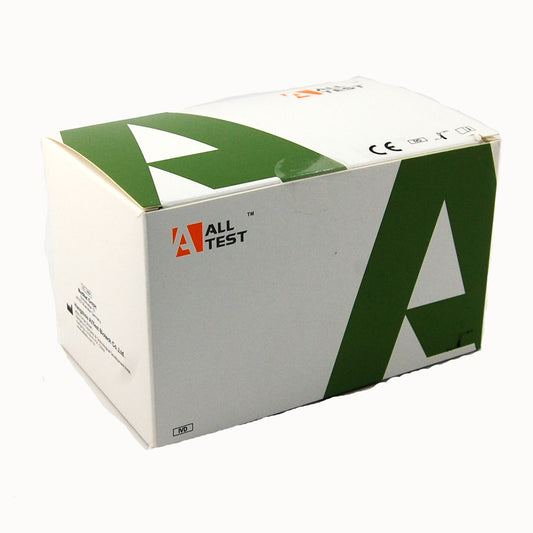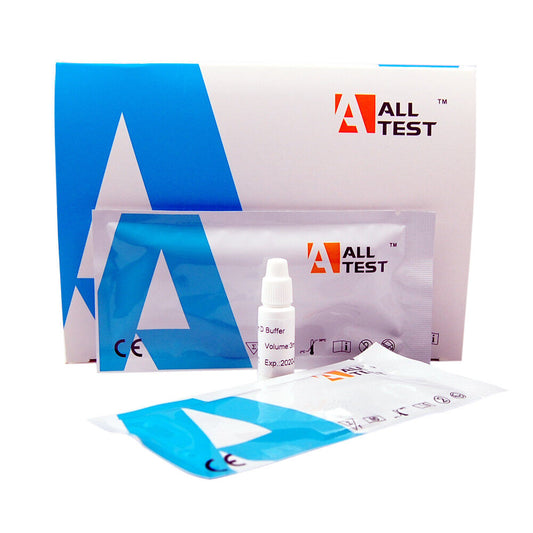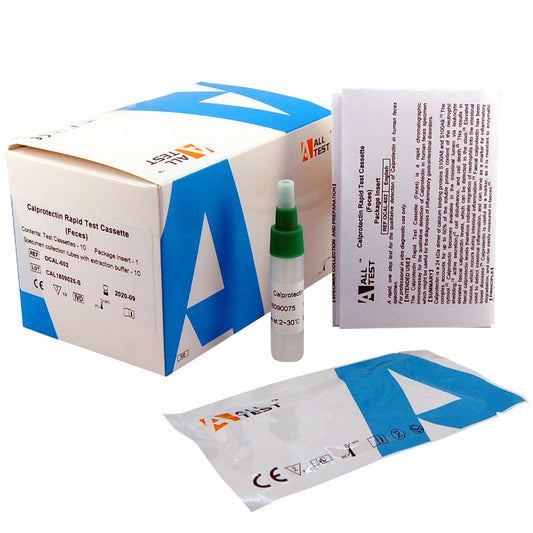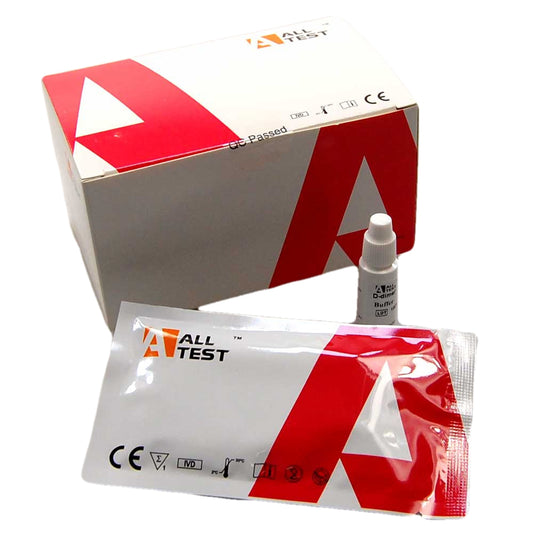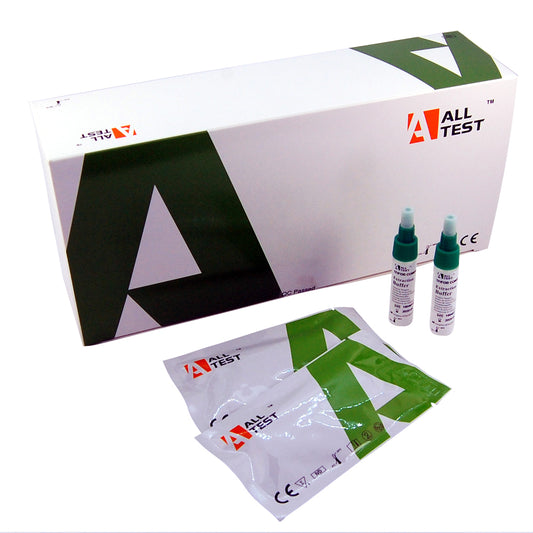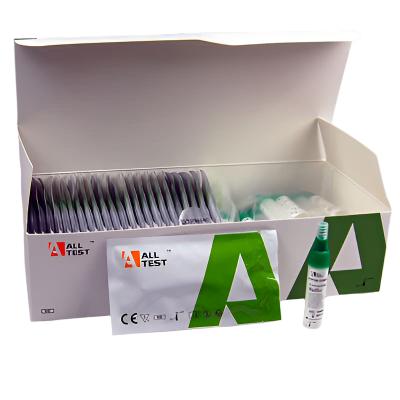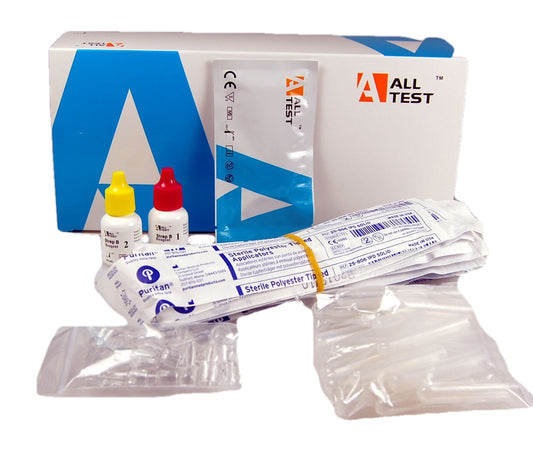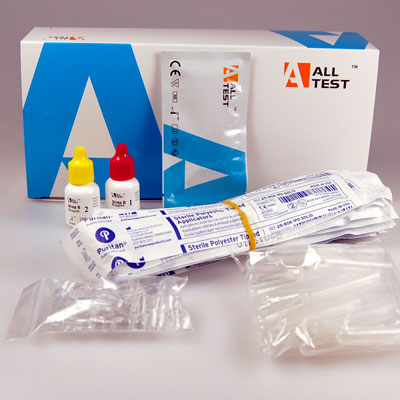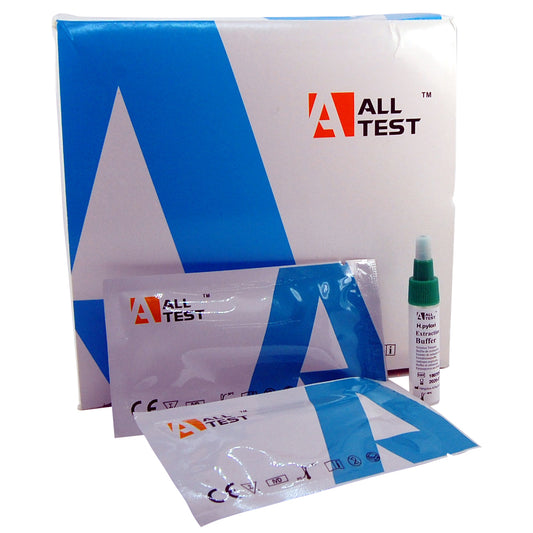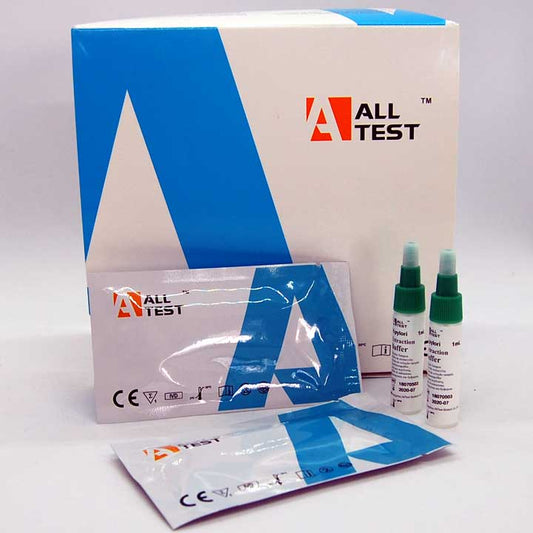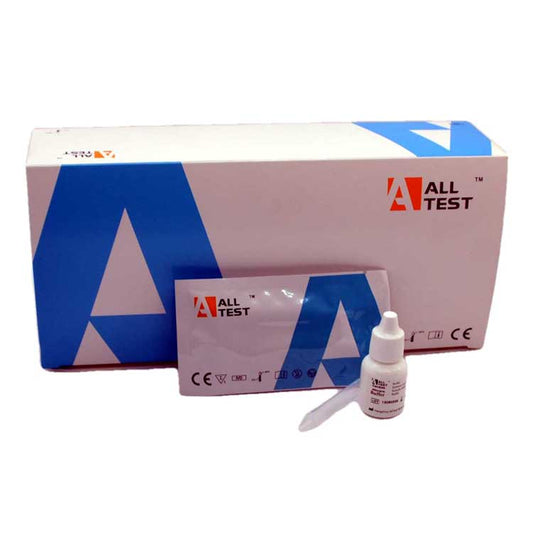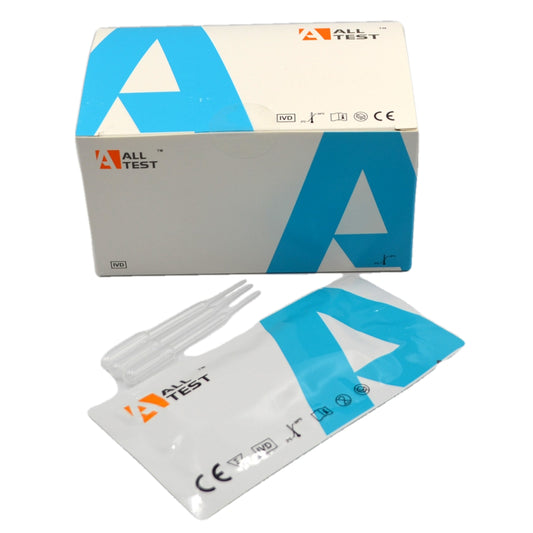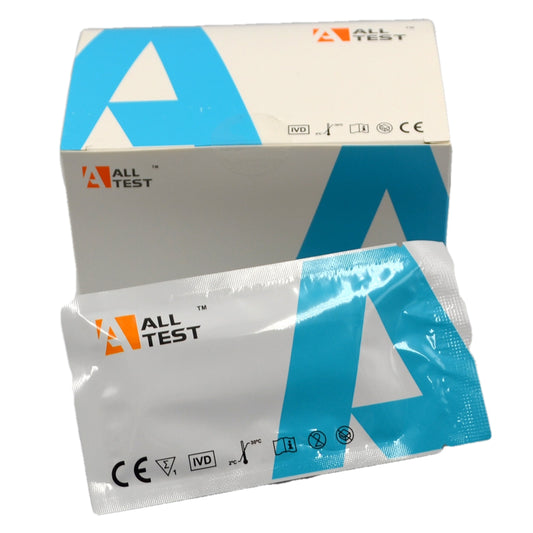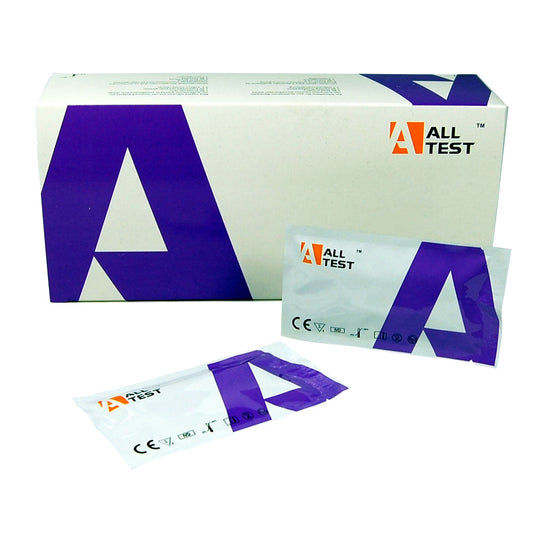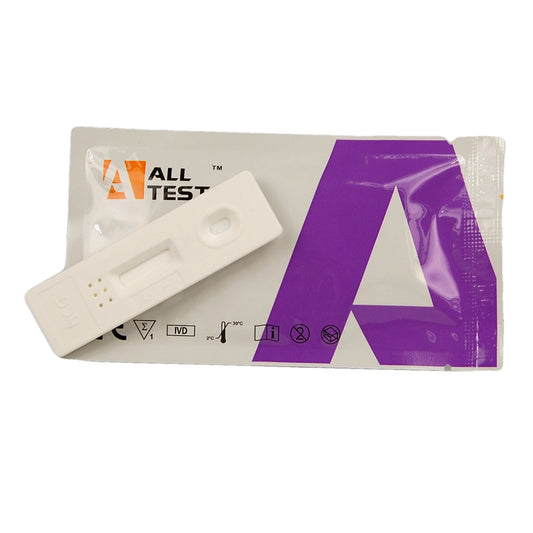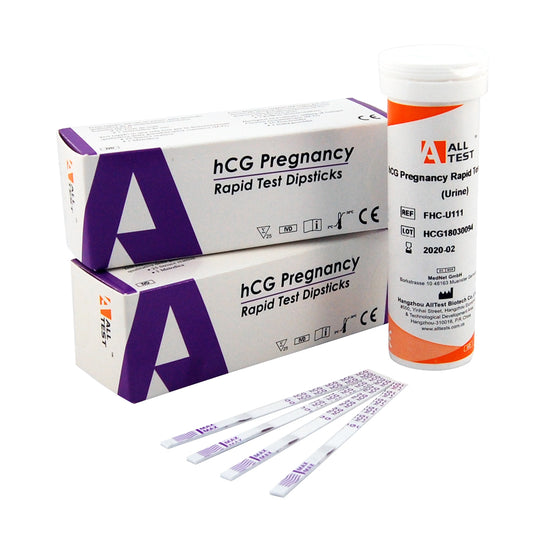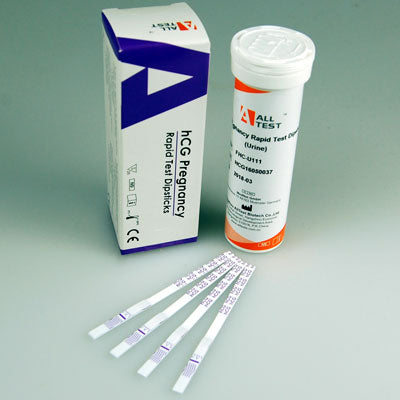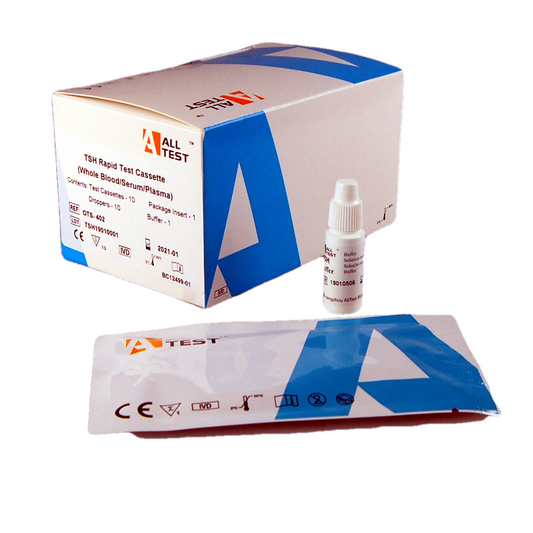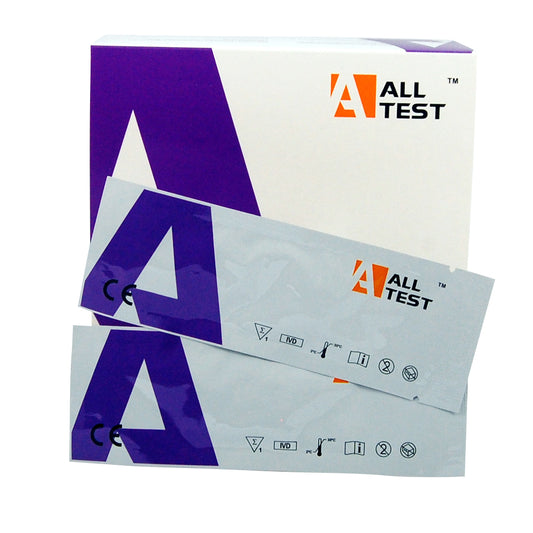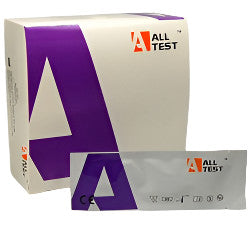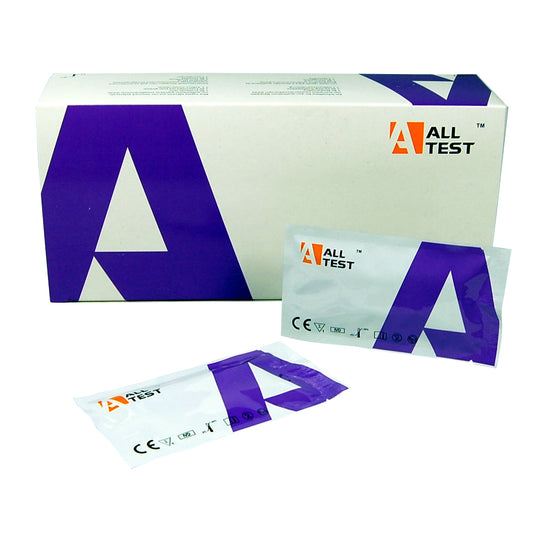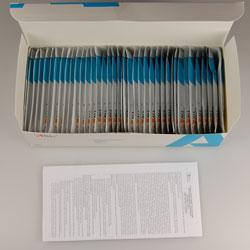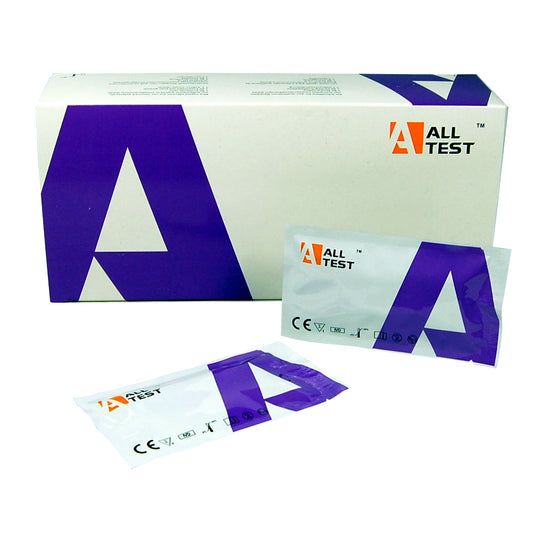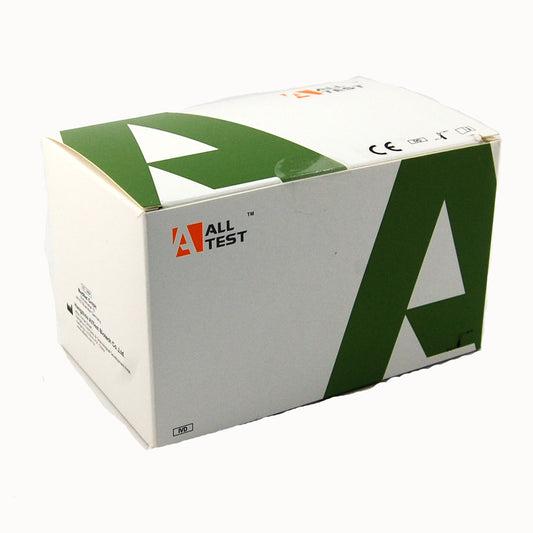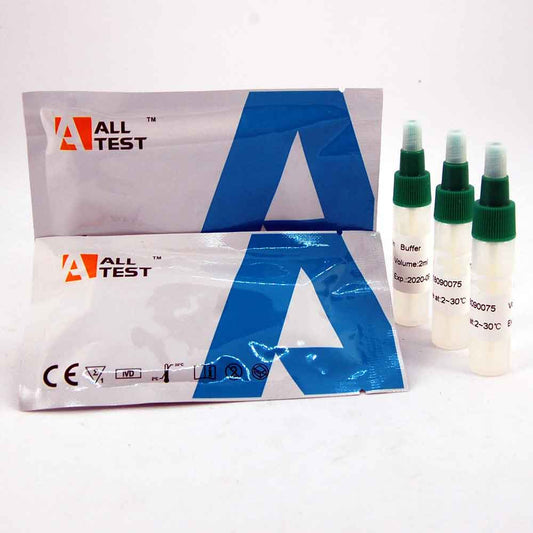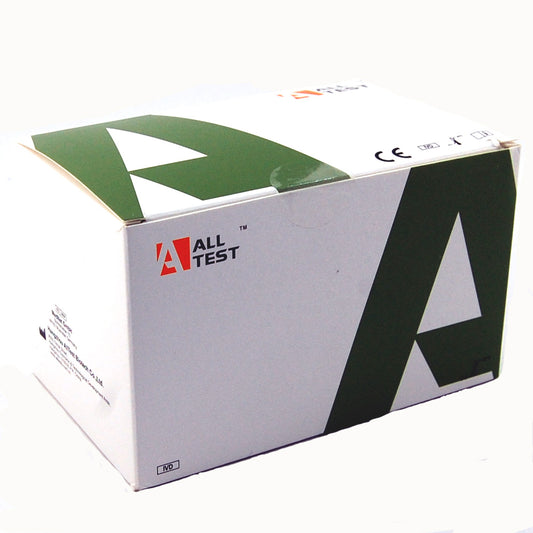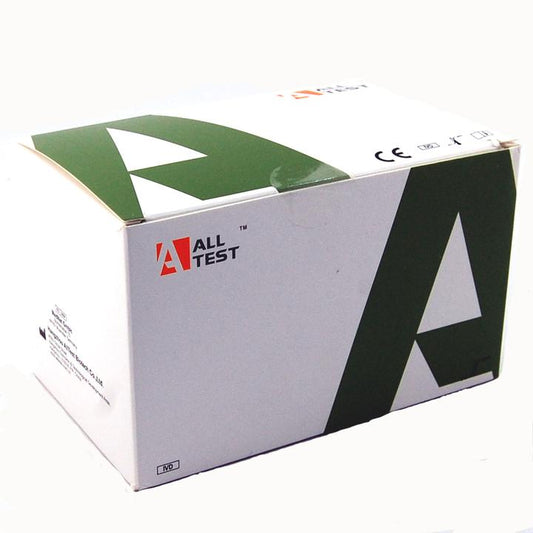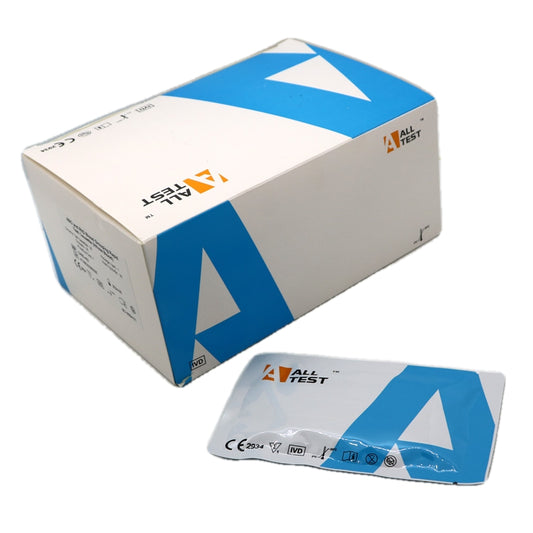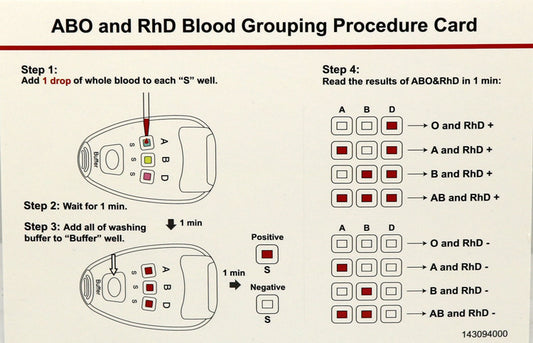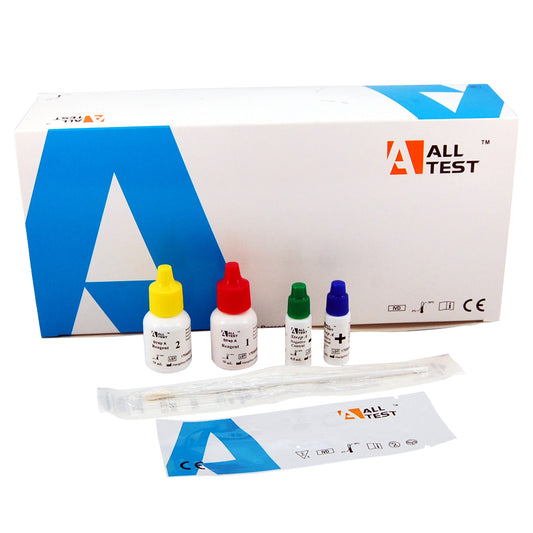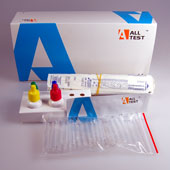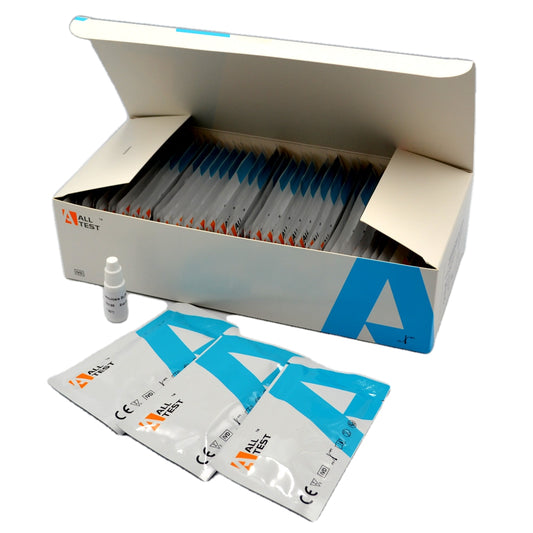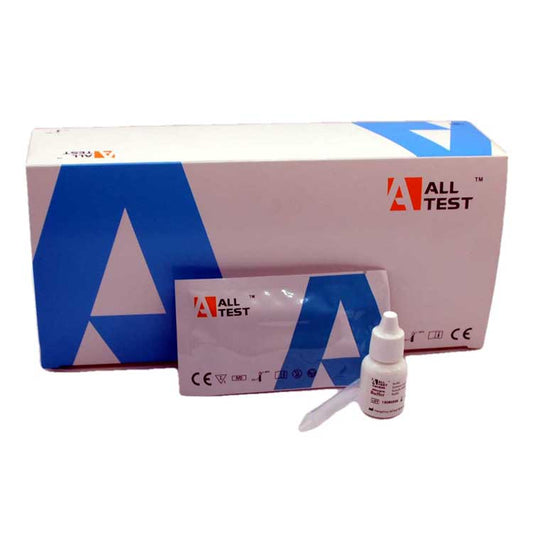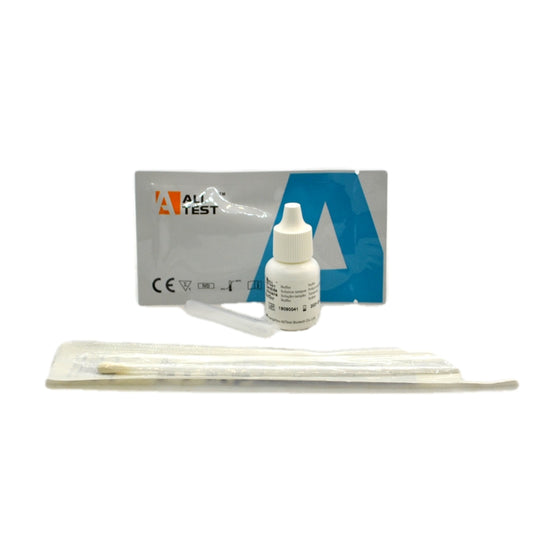Collection: Professional Rapid Diagnostic Test Kits
Professional disease diagnostic test kits are medical devices that are designed to help diagnose specific diseases or conditions, quickly and easily. These rapid diagnostic testing kits as their name implies give immediate results, and are typically designed for use in a clinical or laboratory setting, and are for use by healthcare professionals or trained individuals only. They are not home test kits. If you require diagnostic test kits for personal use see our range of home diagnostic test kits.
-
ALLTEST Professional CA15-3 Breast Cancer Rapid Test Cassette 10 Test Pack
No reviewsRegular price £49.99 GBPRegular priceUnit price / per -
ALLTEST Professional Calprotectin Rapid Test Cassette
1 reviewRegular price From £7.95 GBPRegular priceUnit price / per -
ALLTEST Professional D Dimer Tests CDM-402 Pack Of 10
1 reviewRegular price £27.00 GBPRegular priceUnit price / per -
ALLTEST Professional Faecal Occult Blood & Transferrin Test Cassettes Pack Of 25
No reviewsRegular price £27.99 GBPRegular priceUnit price / per -
ALLTEST Professional Group B Strep Test Kits Pack Of 20
No reviewsRegular price £43.56 GBPRegular priceUnit price / per£48.67 GBPSale price £43.56 GBPSale -
ALLTEST Professional H Pylori Faecal Antigen Test Cassettes Pack Of 25
No reviewsRegular price £49.99 GBPRegular priceUnit price / per -
ALLTEST Professional HbA1c Glycosylated Haemoglobin Blood Test Kits Pack of 10 Test
1 reviewRegular price £69.23 GBPRegular priceUnit price / per£69.23 GBPSale price £69.23 GBP -
ALLTEST Professional Hepatitis C Antibody HCV Instant test Kits IHC-402 Pack Of 40
No reviewsRegular price £40.00 GBPRegular priceUnit price / per -
ALLTEST Professional Lyme Disease Test Cassette Kits ALLTEST ILY-402 Pack Of 10
No reviewsRegular price £39.00 GBPRegular priceUnit price / per -
ALLTEST Professional Pregnancy Test Cassettes 25mIU Pack Of 40
No reviewsRegular price £13.75 GBPRegular priceUnit price / per -
ALLTEST Professional Pregnancy Test Strips FHC-U111 10mIU Ultra Early Pregnancy Test Pot of 25
1 reviewRegular price From £3.25 GBPRegular priceUnit price / per -
ALLTEST Professional PSA Test Cassettes Prostate Test Kits Pack Of 10
No reviewsRegular price £14.99 GBPRegular priceUnit price / per -
ALLTEST Professional TSH Thyroid Test Cassettes Pack Of 10
No reviewsRegular price £19.99 GBPRegular priceUnit price / per -
ALLTEST Professional Pregnancy Test Strips FHC-U101 10mIU Ultra Early Pregnancy Test Strip Pack Of 50
1 reviewRegular price From £4.99 GBPRegular priceUnit price / per -
ALLTEST Professional TSH Thyroid Test Cassettes Pack Of 40
No reviewsRegular price £54.45 GBPRegular priceUnit price / per£84.48 GBPSale price £54.45 GBPSale -
ALLTEST Professional Pregnancy Test Cassettes 10mIU Ultra Early Pregnancy Test Kits Pack Of 40
No reviewsRegular price From £13.75 GBPRegular priceUnit price / per -
ALLTEST Professional Pancreatic Cancer CA19-9 Rapid Test Cassette 10 Test Pack
No reviewsRegular price £49.99 GBPRegular priceUnit price / per -
ALLTEST Professional Lactoferrin Test Faeces Rapid Test Cassette 10 Test Pack
No reviewsRegular price £24.00 GBPRegular priceUnit price / per -
ALLTEST Professional CA125 Ovarian Cancer Rapid Test Cassettes Pack Of 10
No reviewsRegular price £52.99 GBPRegular priceUnit price / per -
ALLTEST Professional Campylobacter Test Cassette Kits ICAM-602 Pack Of 10
No reviewsRegular price £47.98 GBPRegular priceUnit price / per£47.98 GBPSale price £47.98 GBP -
ALLTEST Professional ABO and Rhesus Blood Grouping Test Kits OABD-402 Pack Of 25
No reviewsRegular price £96.00 GBPRegular priceUnit price / per -
ALLTEST Professional Strep A Test Kits Pack Of 25
No reviewsRegular price £27.99 GBPRegular priceUnit price / per -
ALLTEST Professional Tuberculosis Disease Test Cassette Kits ITB-402 Pack Of 40
No reviewsRegular price £42.00 GBPRegular priceUnit price / per -
ALLTEST Professional Candida Albicans Thrush Instant test Kits ICA-502 Pack Of 10
No reviewsRegular price £39.95 GBPRegular priceUnit price / per
Professional medical disease rapid diagnostic test kits
Rapid diagnostic tests (RDTs): These tests are designed to provide quick results and can be used to diagnose infectious diseases such as COVID-19. RDT's are designed to provide quick results, typically within minutes to a few hours, as opposed to traditional laboratory tests that may take days to process.
Rapid diagnostic test kits are particularly useful in settings where immediate diagnosis is crucial, such as in emergency rooms, remote areas with limited access to laboratory facilities, or during disease outbreaks. They typically use a simple device, such as a lateral flow test, and can provide results in minutes.
RDTs often come in the form of test strips or cassettes and can be used to diagnose a variety of conditions, including infectious diseases like malaria, HIV, influenza, and dengue fever, as well as certain non-infectious conditions like pregnancy or drug use. These rapid tests usually rely on specific markers such as antibodies, antigens, or nucleic acids to detect the presence of the target organism or substance in a patient's sample (blood, urine, saliva, etc.).
We stock a large range of rapid diagnostic testing kits and instant disease screening test kits for professional medical use only. The professional medical diagnostic test kits are intended solely for use by healthcare professionals under the supervision of doctors They give positive or negative results in 10 minutes on-site. We also have a range of rapid diagnostic test kits for home use.
While RDTs offer rapid results and are relatively simple to use, they may not always be as sensitive or specific as laboratory-based tests. Therefore, confirmatory testing may be necessary in some cases, especially when the initial result is inconclusive or when high accuracy is critical. Nevertheless, RDTs play a crucial role in expanding access to diagnostic services, particularly in resource-limited settings.
It is important to note that professional disease diagnostic test kits should only be used by trained healthcare professionals with appropriate laboratory equipment and under appropriate medical supervision. False positive or negative results can occur, and follow-up testing may be necessary to confirm a diagnosis.
Rapid diagnosis test kits available:
- Campylobacter infection test kits
- Cancer marker tests for CA125 Ovarian, CA153 Breast and CA199 pancreatic test kits
- Candida Albicans Thrush test kits
- Calprotectin test and Lactoferrin screening tests
- Covid 19 antigen and antibody test kits
- D Dimer test kits
- FOB & transferrin bowel cancer screening test kits
- HBA1C pre-diabetes screening test kits
- Hepatitis C antibody test
- Hepatitis B antigen test
- H Pylori faecal antigen diagnostic test kits
- H Pylori Blood Antibody test kits
- IMO Infectious Mononucleosis test kits
- PSA prostate specific antigen test kits
- Syphilis test kits
- Strep A throat infection test kits
- Strep B vaginal infection diagnostic test kits
- TSH thyroid disease screening test kits
- Tuberculosis test kits
- Vitamin D level test kits
Wholesale enquiries
Contact us for bulk, wholesale and NHS pricing quotes on wholesale professional medical rapid diagnostic test kits
NHS and wholesale enquiries and purchase orders by e-mail to trade@adtuk.co.uk
Collapsible content
What are rapid diagnostic tests (RDTs)?
Rapid diagnostic tests (RDTs) are medical assays designed to quickly diagnose various conditions, providing results within minutes to hours. They are especially valuable in settings where immediate diagnosis is essential.
How do rapid diagnostic tests work?
RDTs typically use specific markers such as antibodies, antigens, or nucleic acids to detect the presence of target organisms or substances in a patient's sample (e.g., blood, urine, saliva). Results are often indicated by colour changes or other visual cues usually a line.
What conditions can rapid diagnostic tests diagnose?
RDTs can diagnose a range of conditions, including infectious diseases like malaria, HIV, influenza, and dengue fever, as well as non-infectious conditions like pregnancy, drug use and prostate disease.
Where are rapid diagnostic tests commonly used?
RDTs are frequently used in various healthcare settings, including hospitals, clinics, emergency rooms, and field locations with limited access to laboratory facilities. They are also vital during disease outbreaks and in remote or resource-limited areas.
How accurate are rapid diagnostic tests?
The accuracy of RDTs can vary depending on factors such as the specific test, the condition being diagnosed, and proper usage. While RDTs offer rapid results, they may not always be as sensitive or specific as laboratory-based tests. Confirmatory testing may be required in some cases.
Are rapid diagnostic tests easy to use?
Yes, RDTs are designed to be user-friendly, often requiring minimal training to perform. They typically come in the form of test strips or cassettes and involve simple procedures for sample collection and analysis.
Can rapid diagnostic tests be used at home?
Some RDTs are designed for home use, such as pregnancy tests or certain infectious disease tests.
What are the benefits of rapid diagnostic tests?
RDTs offer several benefits, including quick results, ease of use, accessibility in various settings, and the ability to facilitate timely diagnosis and treatment, ultimately improving patient outcomes and public health.
How are rapid diagnostic tests regulated?
Regulatory oversight of RDTs varies by country. In many places including the UK, RDTs must meet certain standards and undergo evaluation by regulatory agencies to ensure safety, efficacy, and quality before they can be marketed and used clinically.

